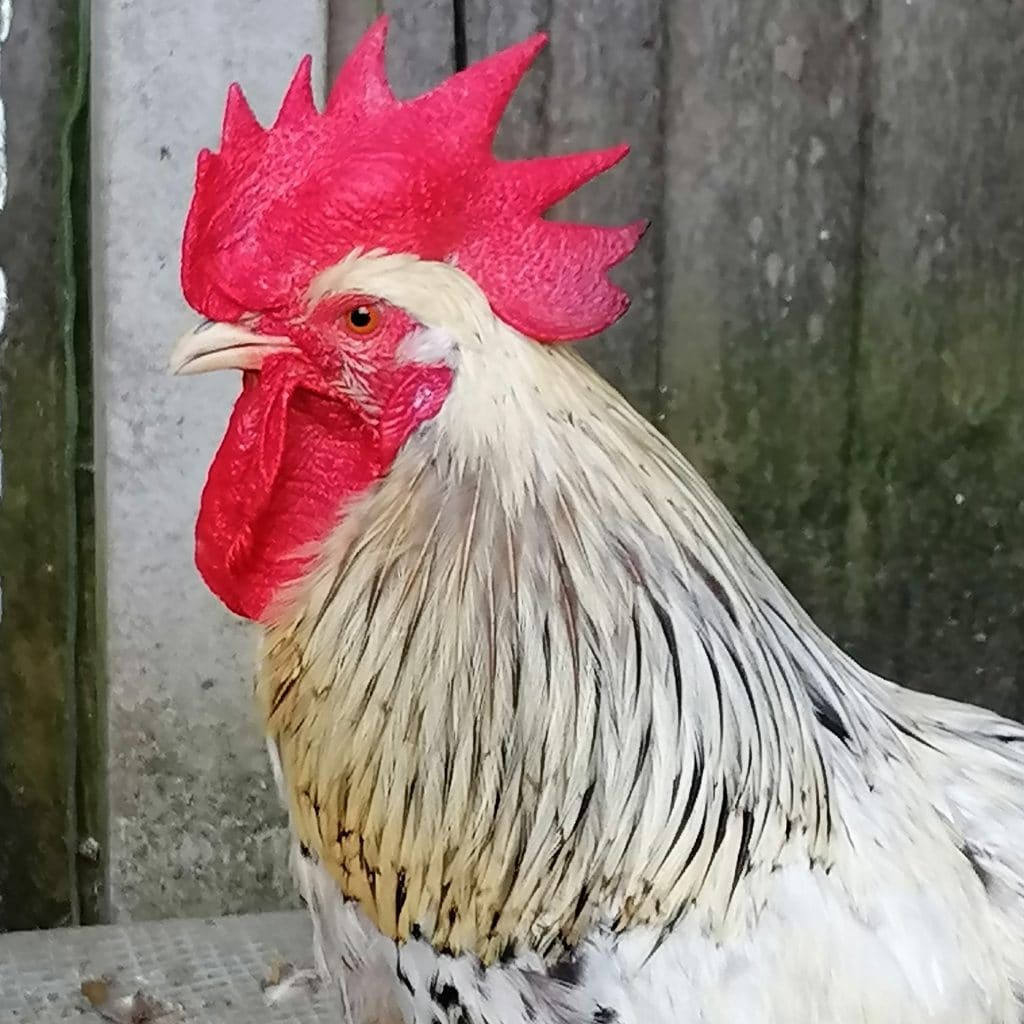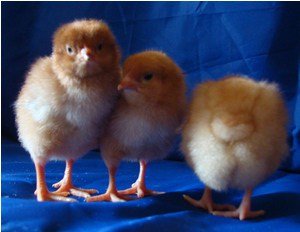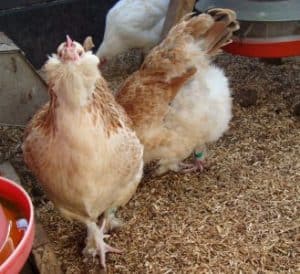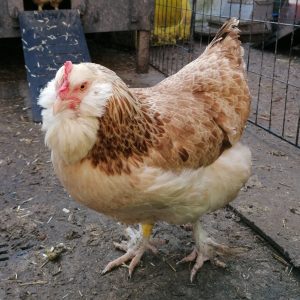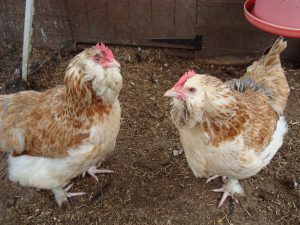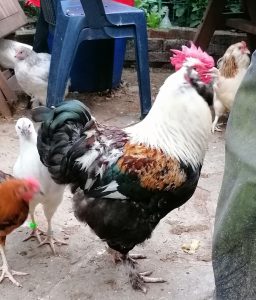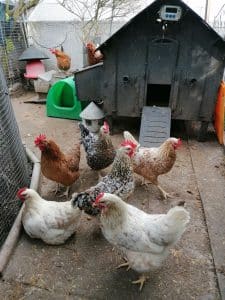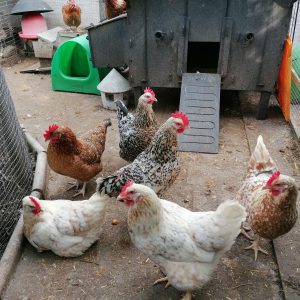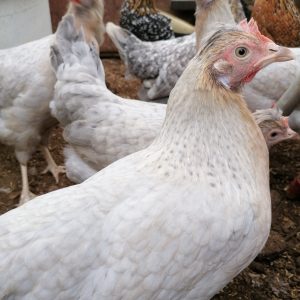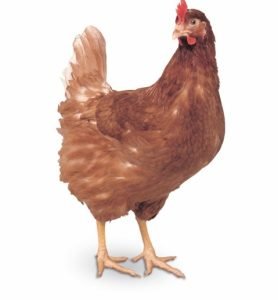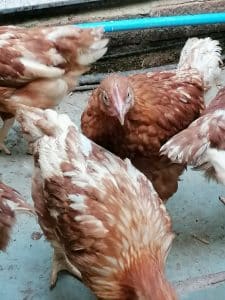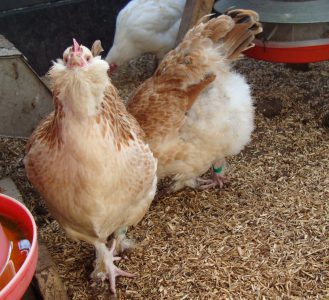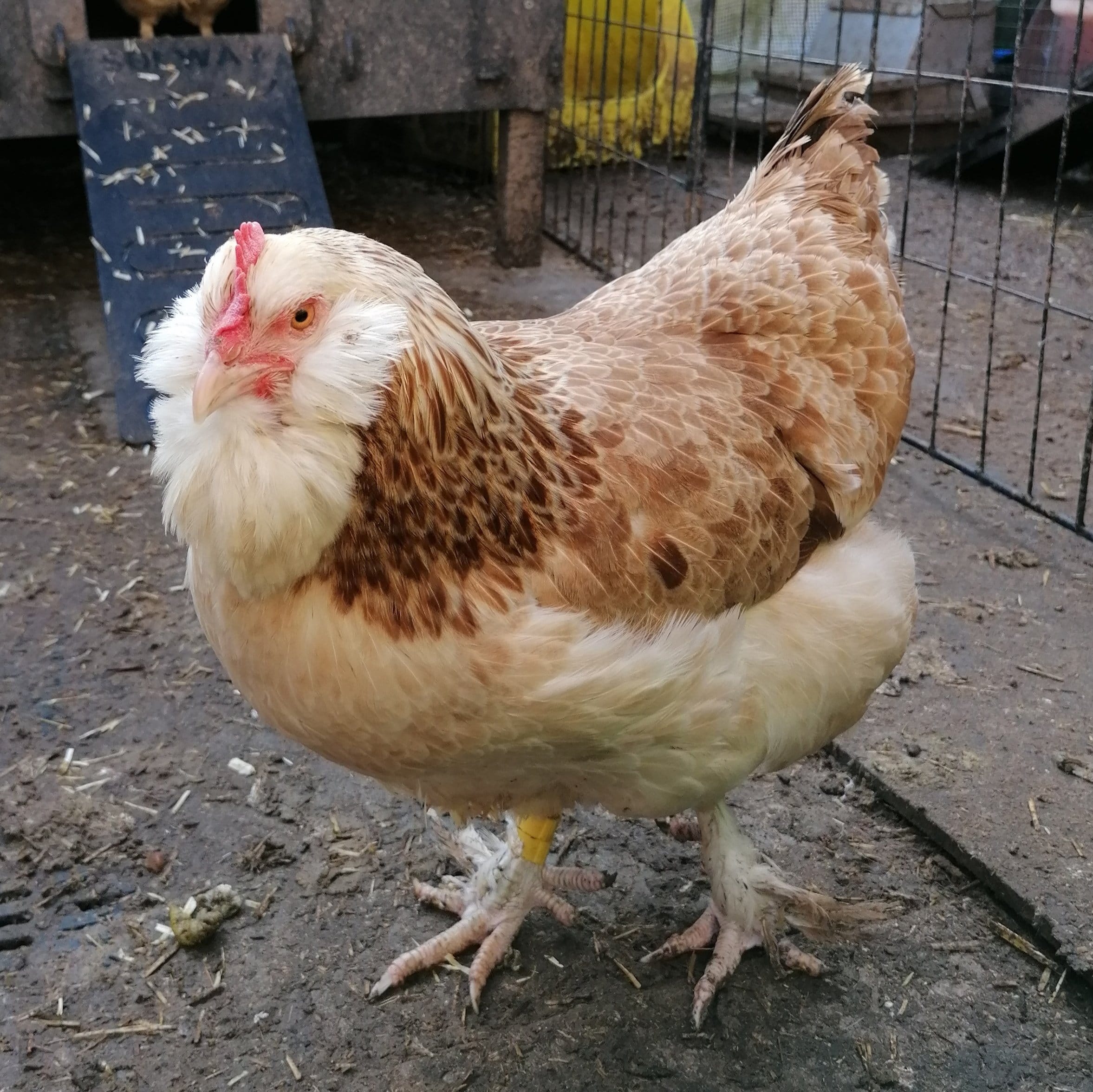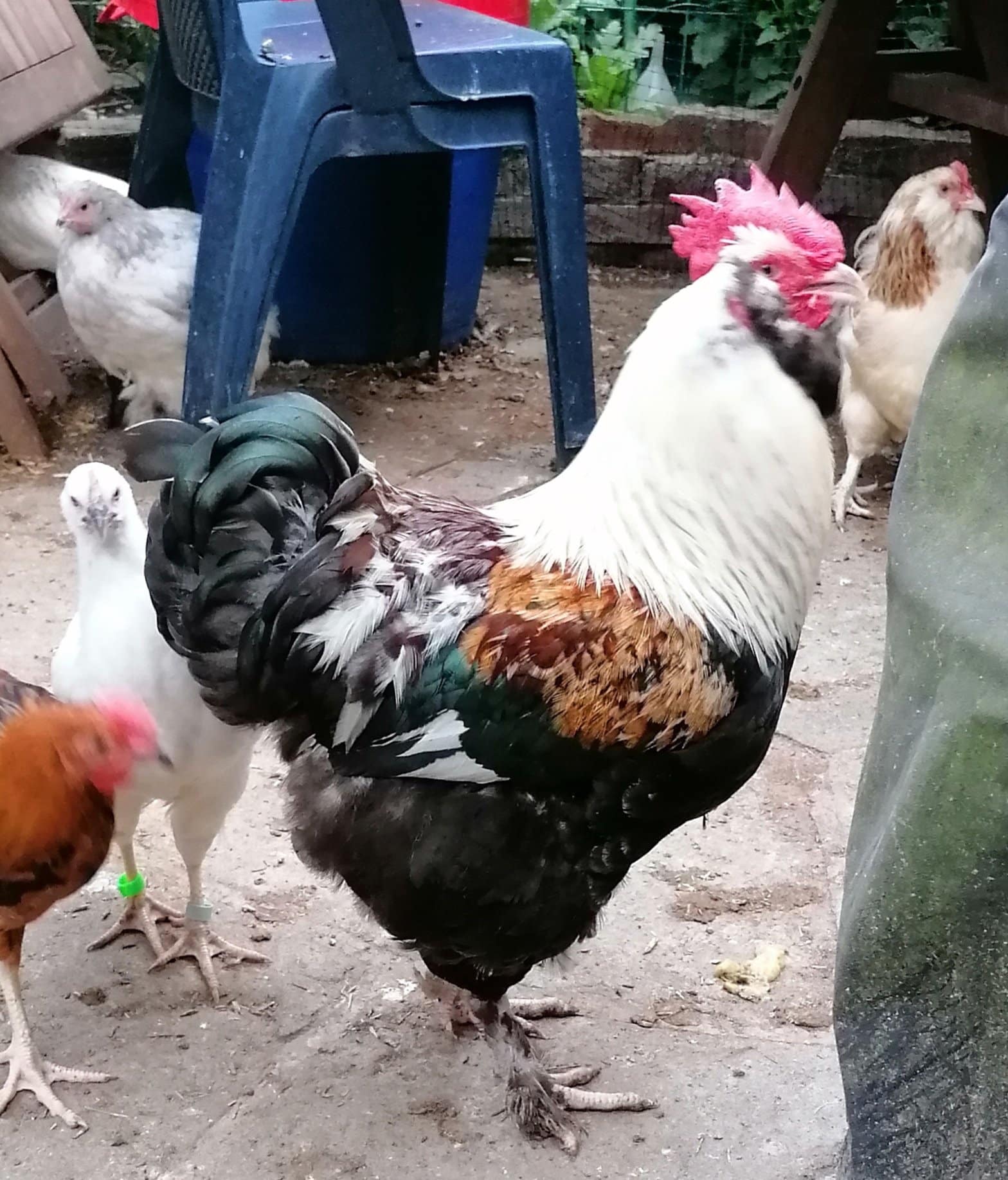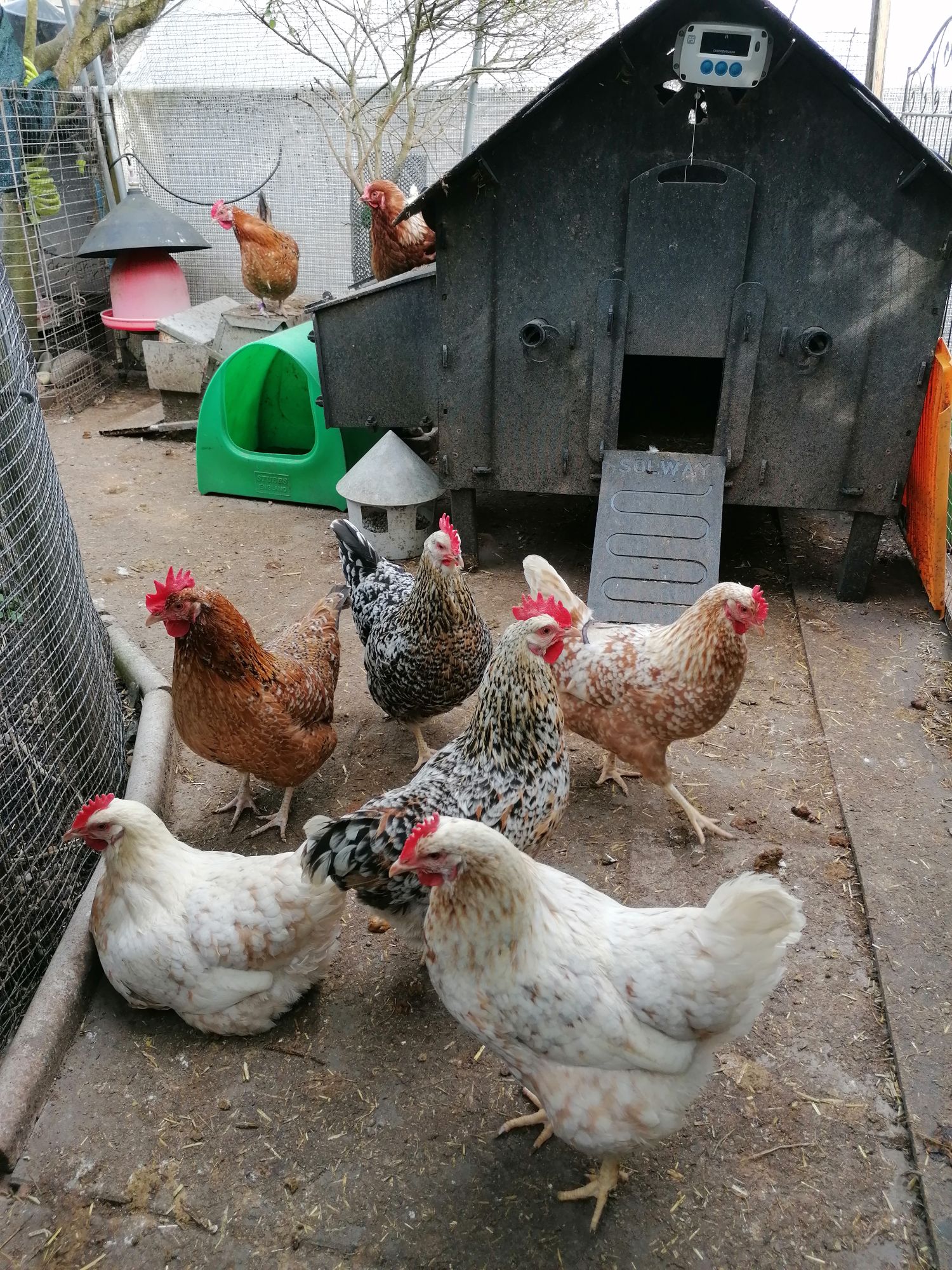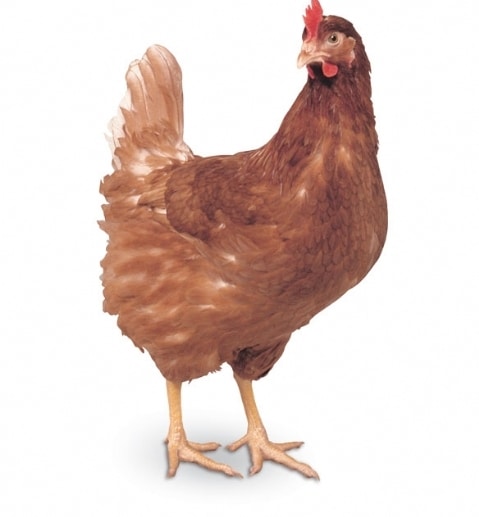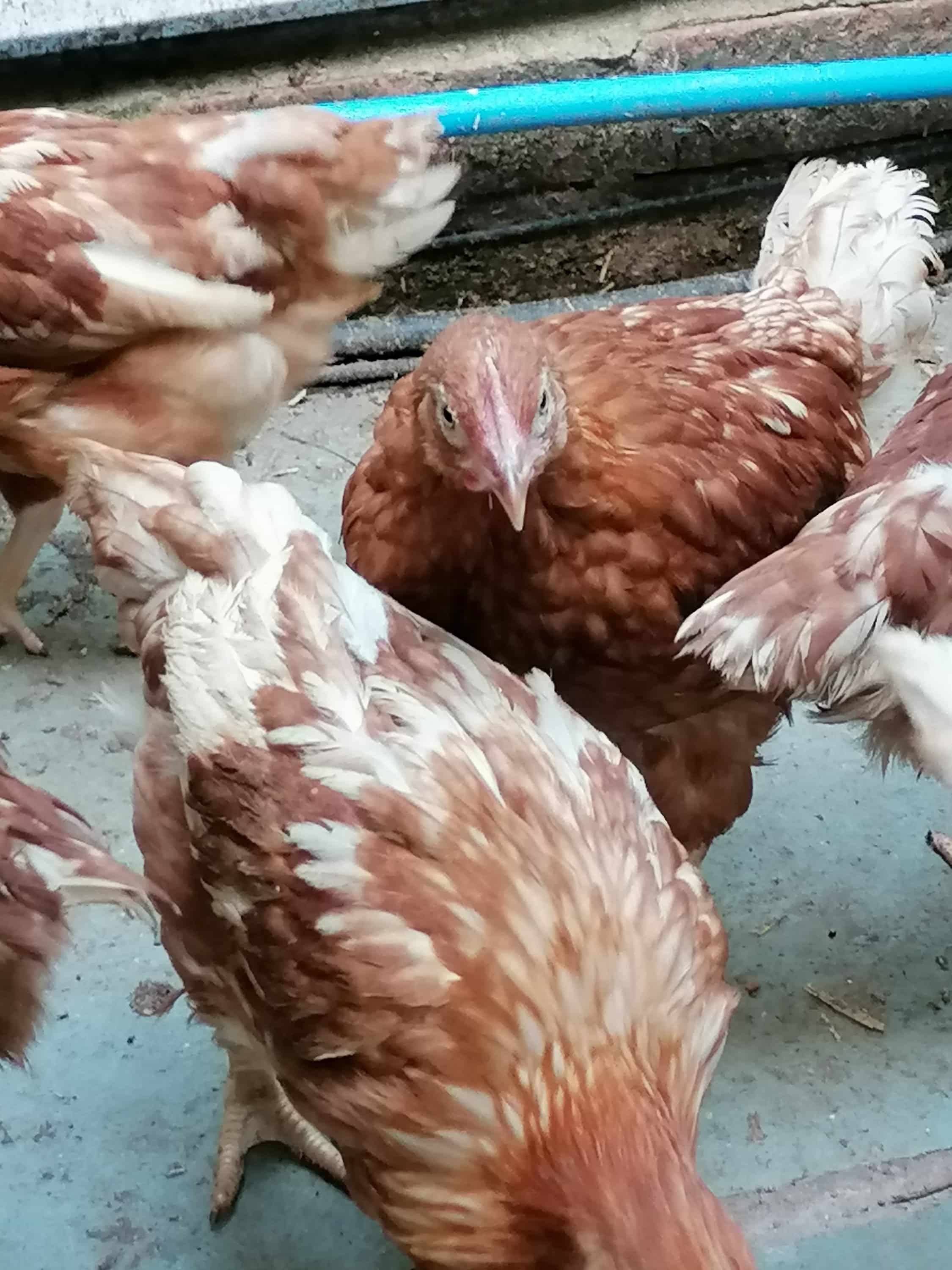Cockerels For Sale
Cockerels for sale in Cheshire are available at all times of the year. They are £15 each for the adult boys. The breeds we currently have are
- Swedish Flower none available just at the moment
- Salmon Faverolles cockerels hatched March 2024
- Silkie miniature cockerels hatched February 2023 in Black, Lavender and Gold mix
- Coming soon Cream Legbar and Copper Black Marans in chick form.
These roosters for sale are what we have left from our breeding program. We handle them regularly so consequently, they are mild mannered and accepting of human interaction. Some are just coming into breeding age but are still young. The younger boys might therefore be a better fit in a much younger flock. Please note that we NEVER pass on any unruly or bad-tempered cockerels. That is dirty pool as far as we are concerned.
Choosing a Cockerel
Cockerels make a beautiful and valuable addition to a flock of hens because they excel as an early warning sign of danger. You may be wondering “do I need a cockerel to live with my hens?” The quick answer is no, however, they will protect their flock of hens with vigour against any predator and very often with their lives. The boys also find food for the flock and will very happily provide fertility for the eggs when they are laid. It’s a tough job but someone has to do it – right?
It is always better to match the hen breed size with a similar sized cockerel. Something like a Cochin for instance is better suited to the large breed sizes like Cochin, Orpington or indeed another Brahma. You don’t need to get the same breed of cockerel as your hens, however, unless you want to do breeding for pure breeds.
Please note that we do not sell our boys for the table or for any other purpose than to accompany a flock of hens.
Most of our cockerels for sale are categorised as large fowl and large fowl heavy. They will not be suitable for bantam sized hens to avoid a squashing event. We do have a number of USA Silkie cockerels which are miniature versions of Silkies. All our pure breed cockerels are good examples of their breed. Our Silkie roosters are suitable for bantam chickens.
Examples of some of our Breeds in cockerel form
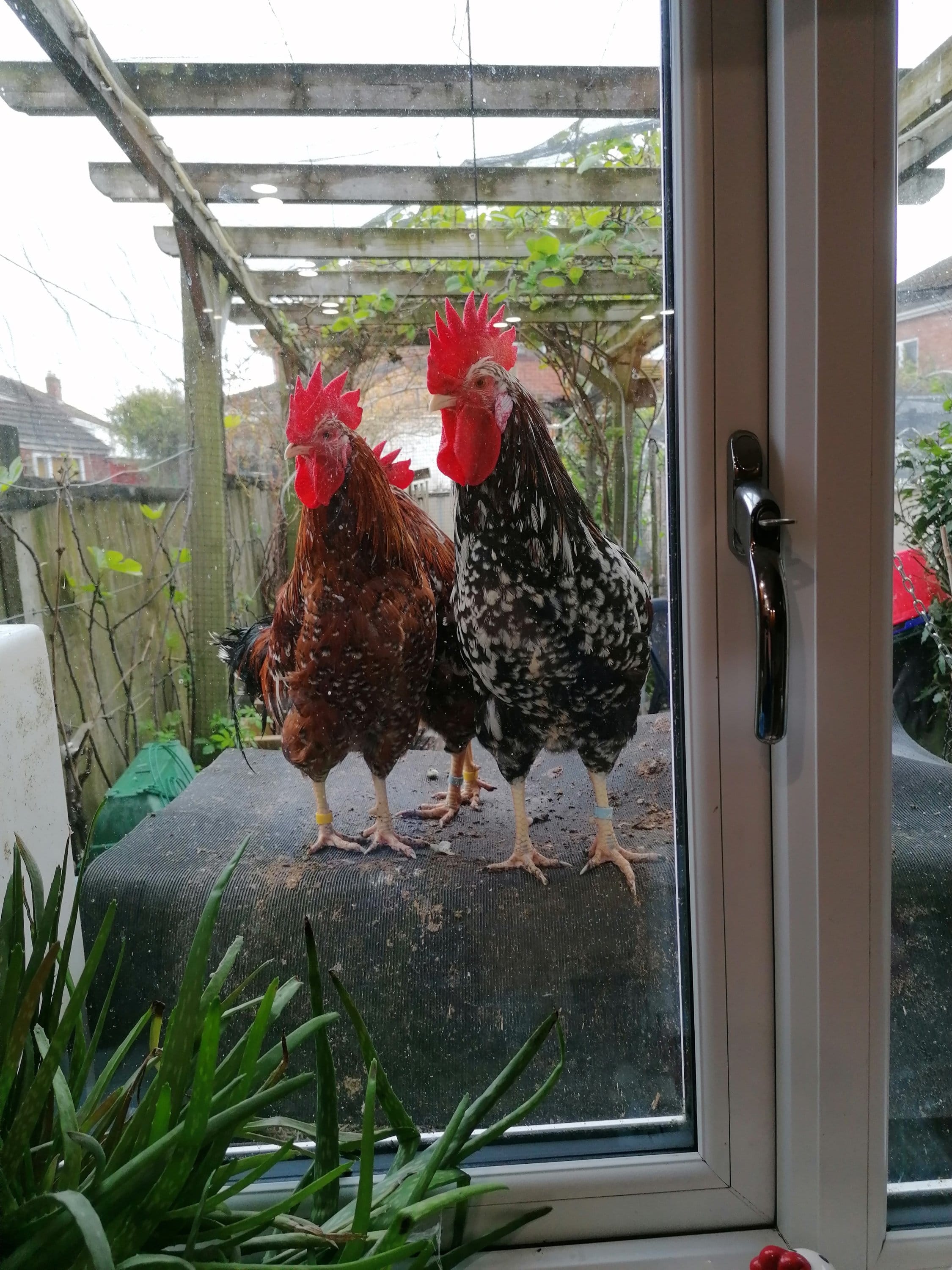
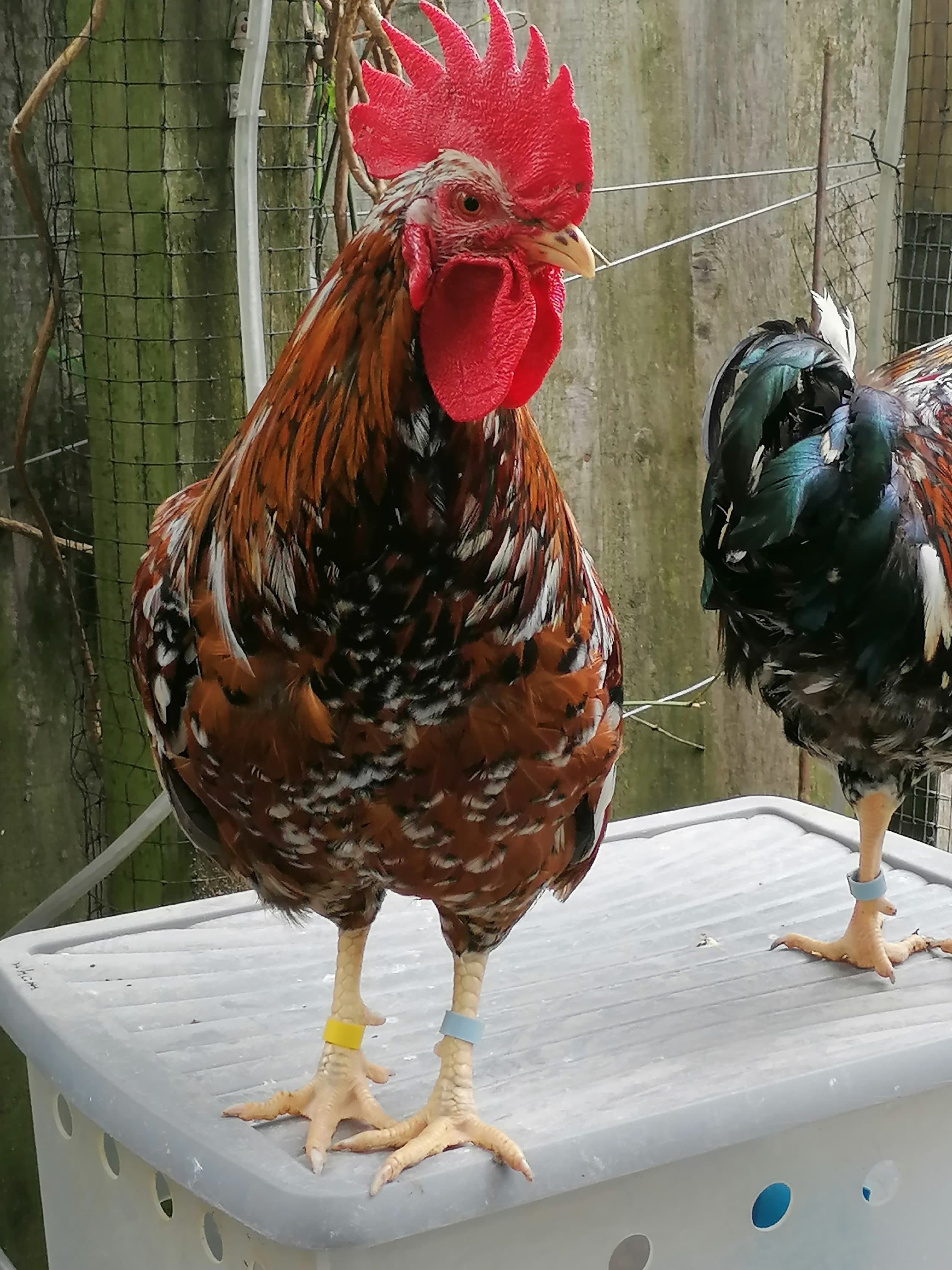
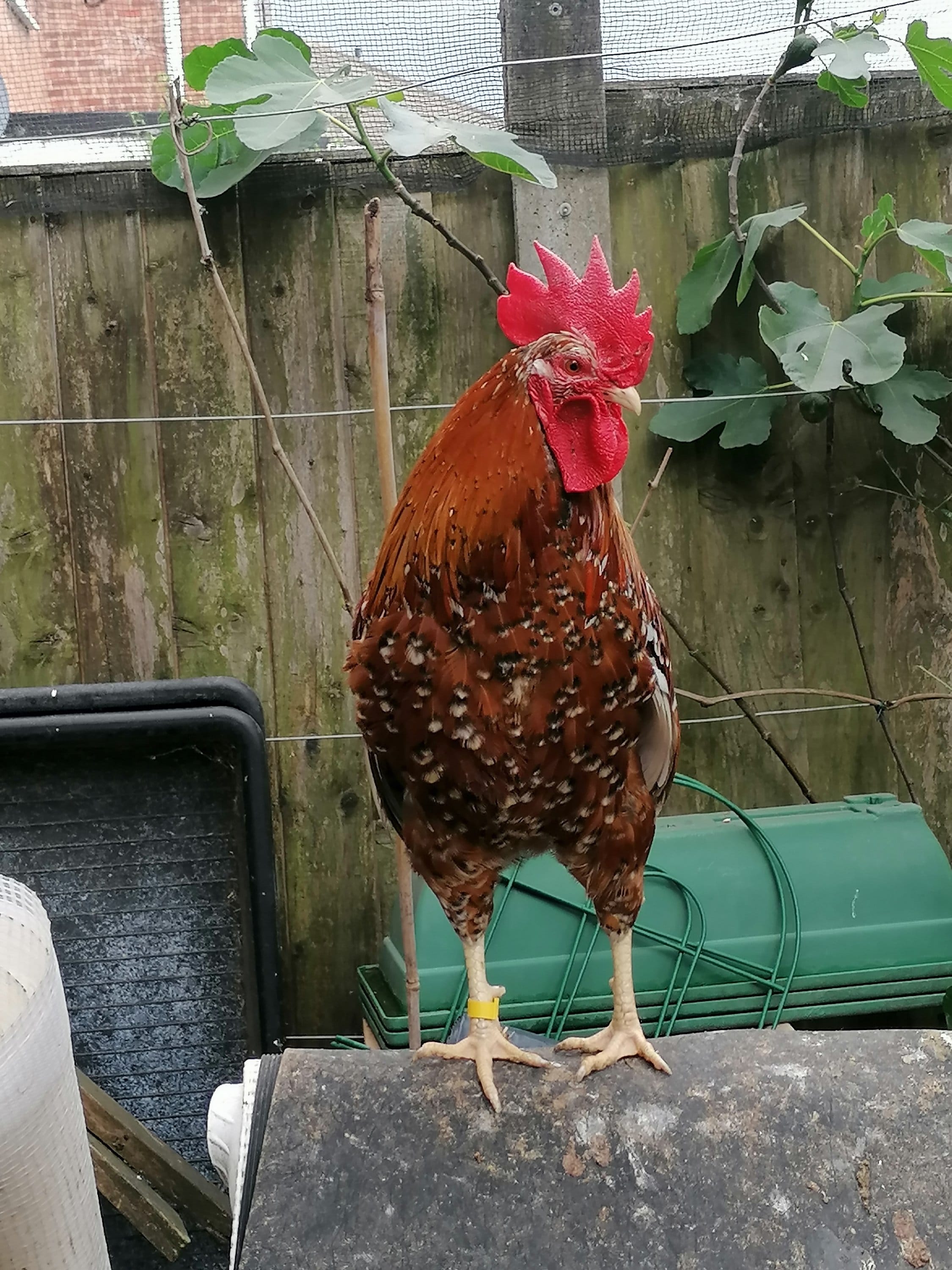
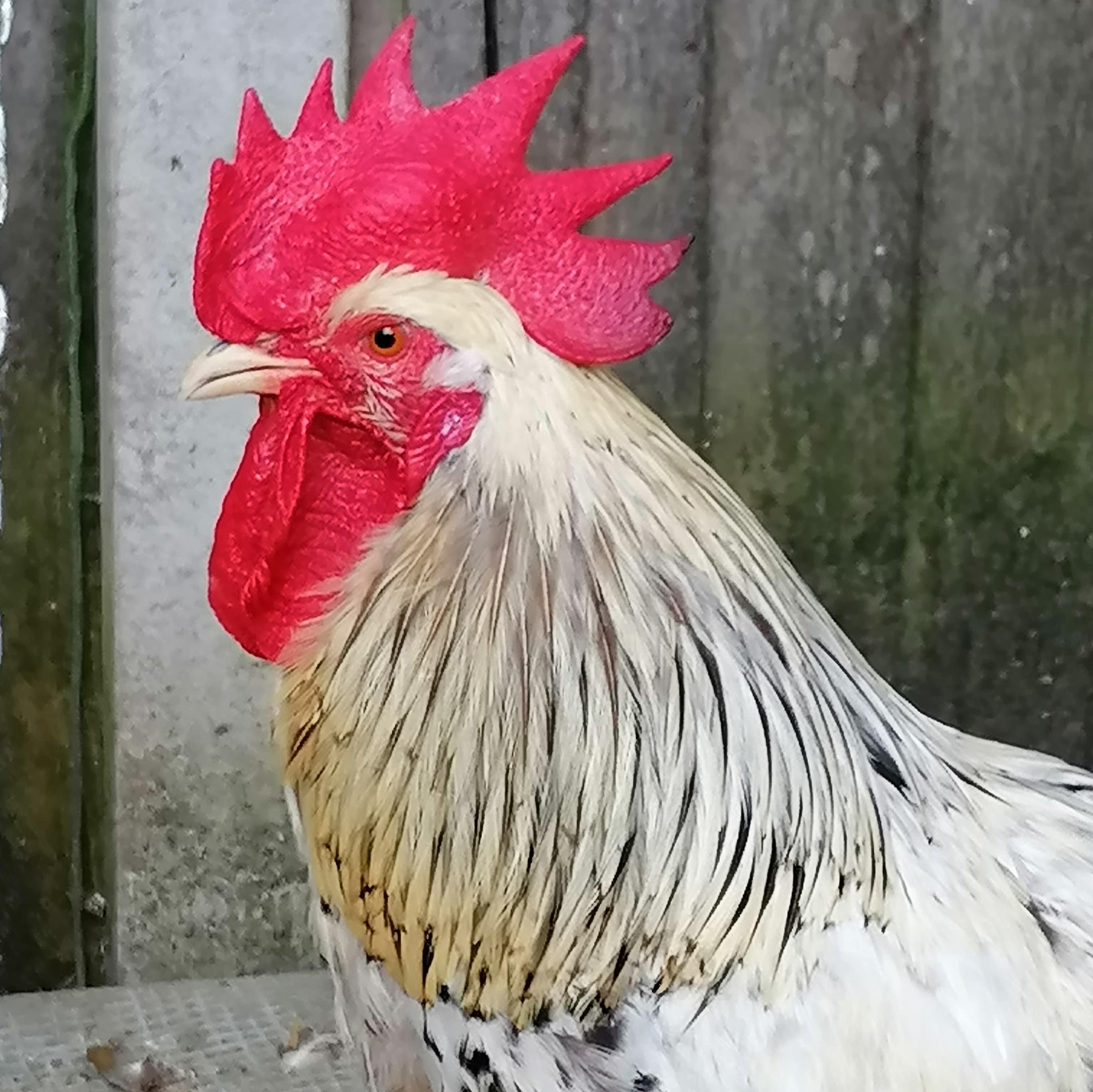
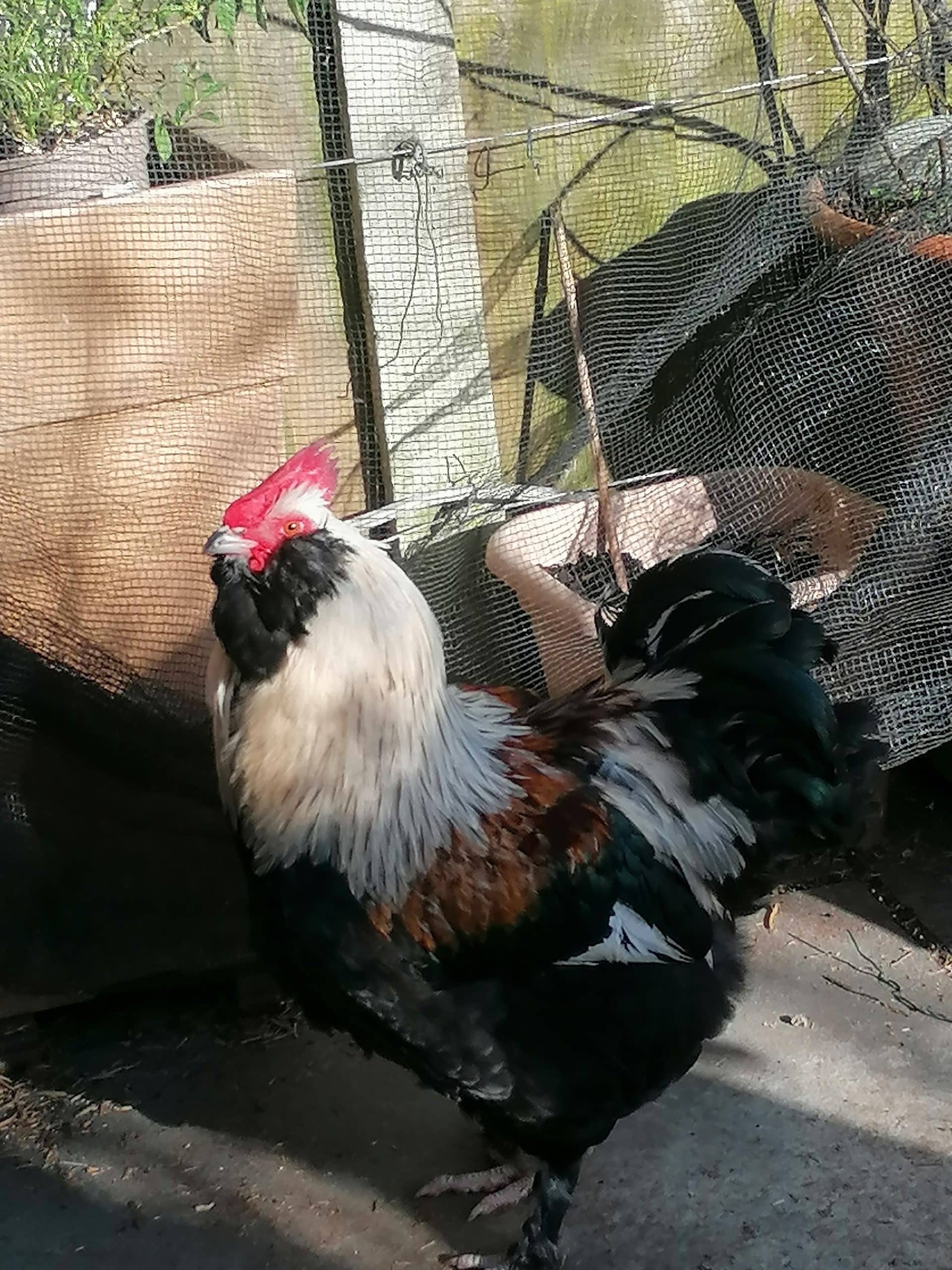
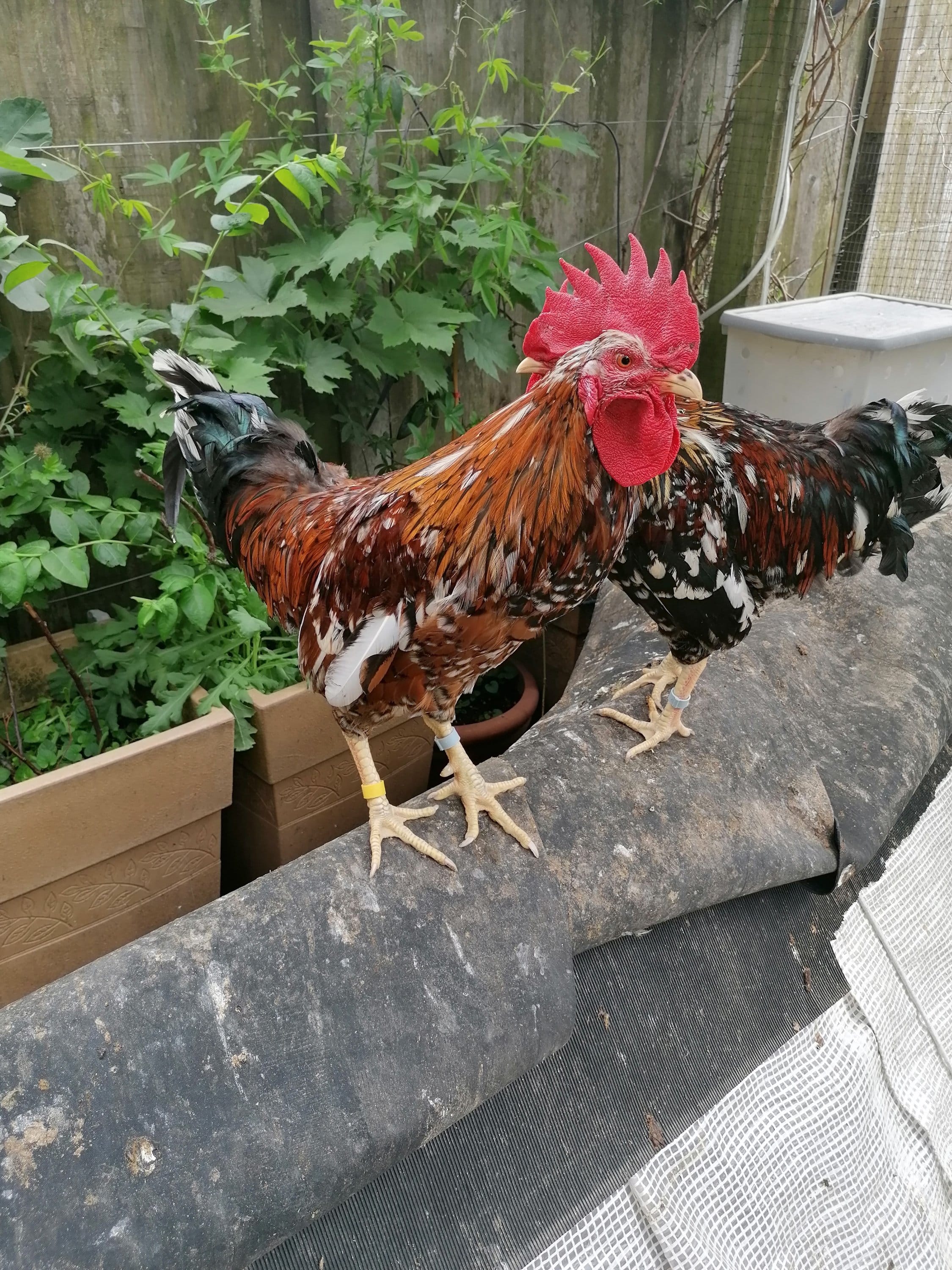
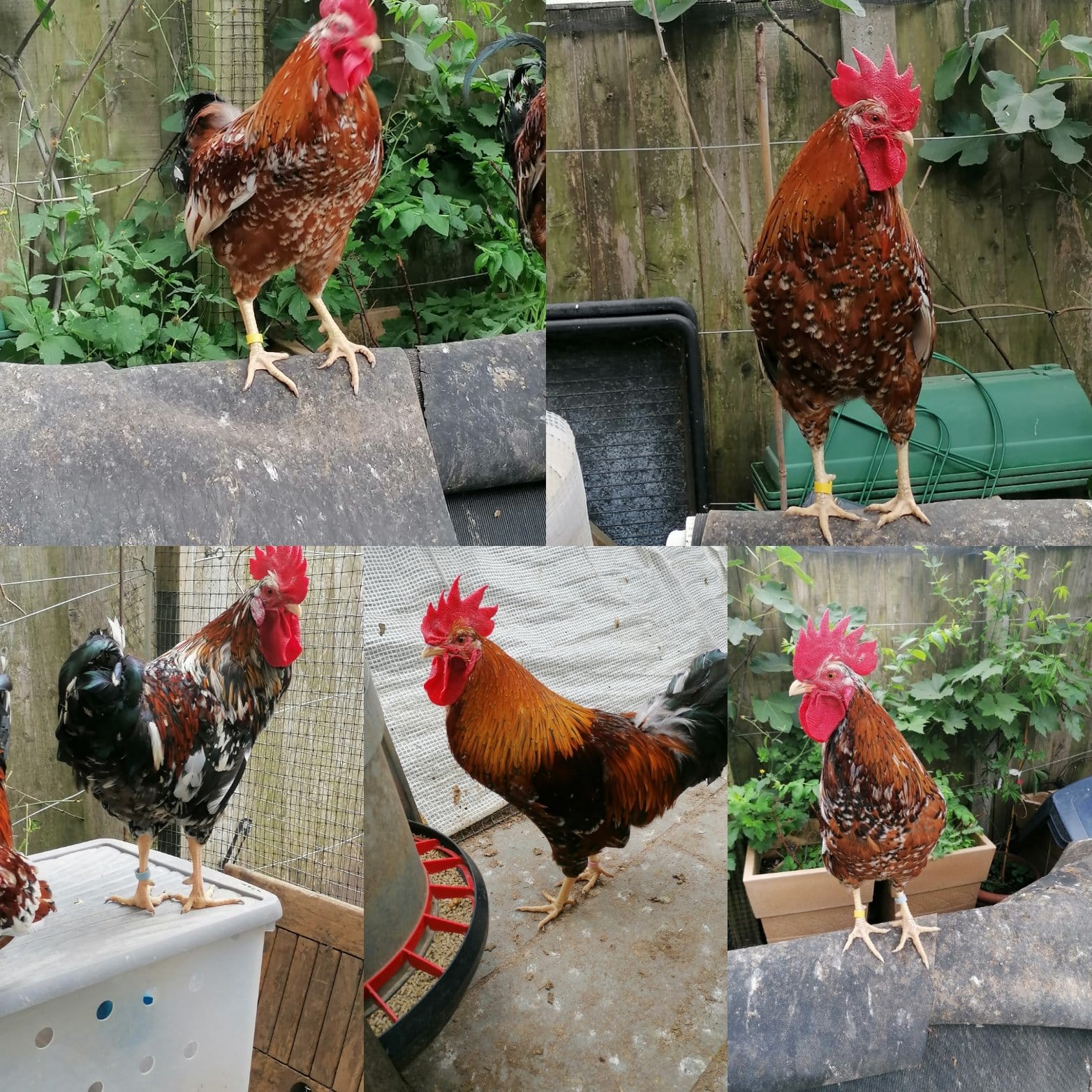
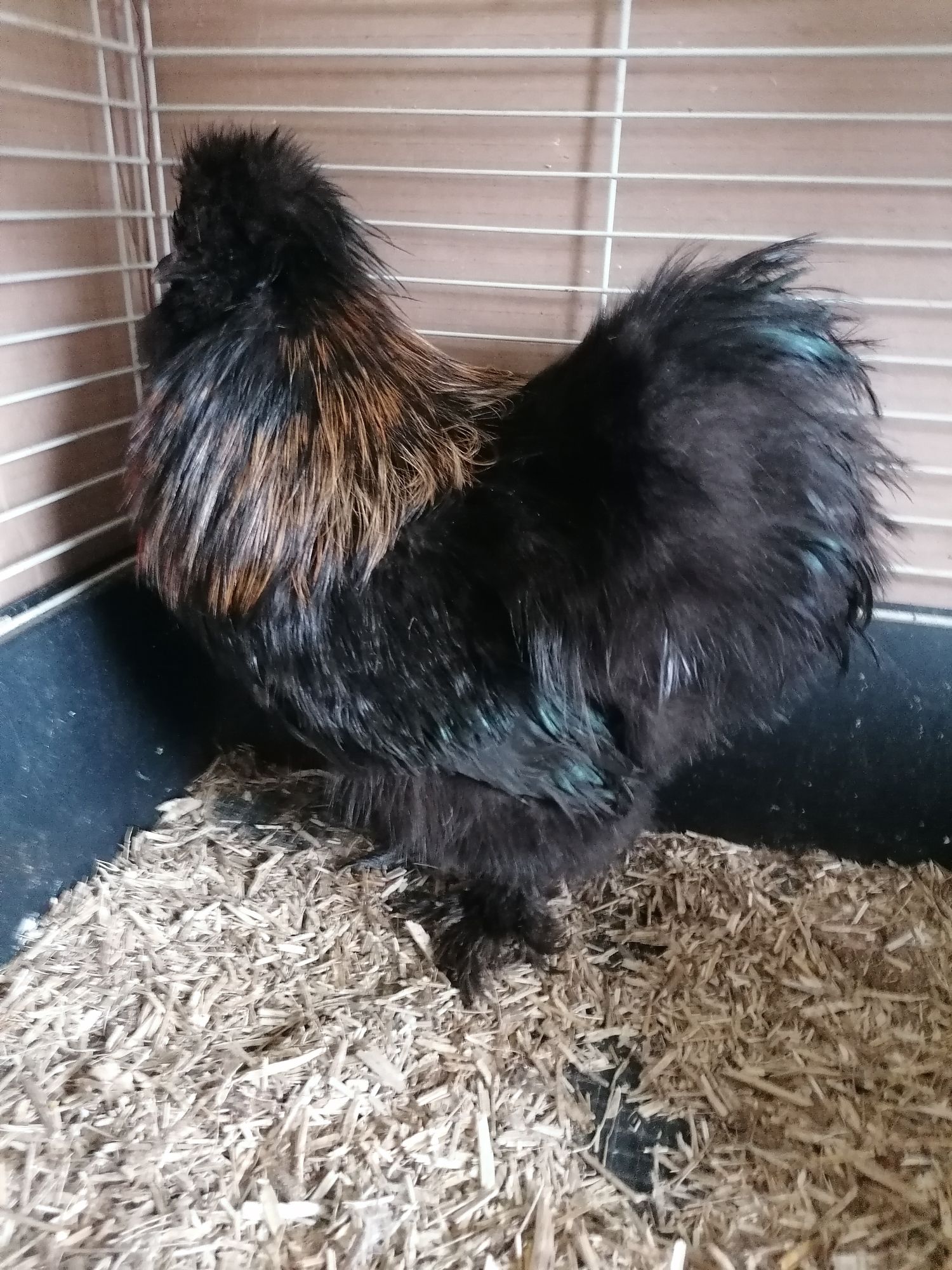
Available Roosters at £15 each
The gallery above is a small selection of what we may have available at various times. Most are youngsters and don’t have proper tails yet as the hens they are with are finding them irresistible. Boys also feather up more slowly than the hens and almost always have a bare back and rather stumpy tail. These are the last feathers to make an appearance. Cockerels don’t show their true finery until they are at least 6 months old and even later in some breeds like Cochin.
All the boys we have are £15 each which reflects the amount of care and socialisation we have given to them as they grow. It also contributes to their feed and bedding costs. Selling the boys too cheaply also means that they could more likely become prey to those who might wish to do them harm or worst still use them for illegal fighting or baiting.
The benefits
Many people will tell you that a cockerel will prevent any hens having too much of a fight for the pecking order because he becomes top dog. This is not really accurate. Cockerels have 3 functions, 1. to find food, 2 to protect the flock, 3 to make more chickens. They are not really good at breaking up fights. What they do do is to make sure that the hens feel safe because the hens can leave the protection duties to the boy. A flock without a guardian has to do all the work themselves so they are always on high alert to detect any danger. The hens form the pecking order amongst themselves. A head chicken is always a hen. Cockerels form their own hierarchy amongst the males. Just like humans, many males like to portray that they are in charge, but the reality is often a different story.
Warnings and advisory about Cockerels
Cockerels are a very protective creature. As far as they are concerned, the hens belong to them, and them alone. They will take any perceived threat very seriously. A cockerel in attack mode will attack out of the blue with apparently no warning. Learn to understand their behaviour and more often than not they will not feel the need to feel defensive because of you. Adult Cock birds have VERY sharp spurs which will slice through wellingtons with ease. We would strongly advise against allowing any children to be around any cockerels. Cockerels in attack mode can do some serious and potentially life-changing damage to a child.
Warnings to consider with cockerel behaviour
- Making any loud noises or shouting around a cock bird will dramatically increase his alert level and can cause him to lash out.
- He is more likely to be in a more alert state in peak breeding season which is Spring and Summer.
- Don’t bend over facing onto a cockerel. This is a direct threat posture.
- Always listen to his noises. If he is making a deep murmur with 3 syllables then he is definitely warning you. Stand still and don’t look him in the eye. Bop bop bop bop bop noises are generally good noises.
- Never turn your back on them. If they are going to attack, that is when it will likely happen.
- Always watch his body language. If he raises his shoulder or his neck hackles, or pacing back and forth – be very wary.
- Always look sideways to a bird. Looking straight in the eyes is a sign of a direct challenge.
- Don’t allow noisy children to run around these birds. This can trigger the cockerel and an attack on a child could cause serious injury or blindness.
- If you try to pick up any uncooperative hen, he will see that as a challenge.
- When the light is fading, he is on very high alert. He cannot see very well in poor light and will instinctively react if he feels insecure.
- Despite all of the above, you may get very little warning so get to know your bird.
- Wear gloves and wellingtons to protect your hands and legs.
- Cockerel spurs can easily shred wellingtons so be careful.
Gaining rapport
There are many schools of thought on how to build a good relationship with a cockerel. We find that as we handle them at least twice a day then they accept the interaction and don’t see us as a threat. Handle them respectfully and kindly as they need to learn to trust you. Abuse that trust and you won’t generally be able to recover the situation. Hitting or kicking an angry bird is NEVER a good move. You only have to get it wrong once and they don’t forgive or forget.
Noise nuisance
A cock-a-doodle-doo can be issued at random hours of the night if they hear a noise outside the coop. They do like to join in with the dawn chorus. Crowing and singing at dawn is common with all birds and at random intervals during the day. If they can hear another cock they will have crowing competitions which can go on for some time. The cockerel who has uttered the last word is the most powerful, so there is a lot riding on it as far as they are concerned. This has to be considered if you are within earshot of neighbours.
Myths surrounding cockerel crowing
So how can you stop a cockerel from crowing? In short, you can’t stop a cockerel crowing. The only cockerel that doesn’t crow is either dead or ill. It is a total myth that cockerels need to stretch their heads and cannot crow if head height is restricted. A cockerel can crow at any angle. Keeping them in absolute darkness won’t stop them either. Putting a cover over your coop will block ventilation holes which is obviously bad for their health. All birds know the time regardless of whether they can see daylight or not. Cockerels have acute hearing, which means they can hear the dawn chorus which is an irresistible signal to them to join in and have a good old sing song. Cock birds in common with all other flocking birds will have a little “natter” at dusk as the flock settles down for the night.
What you can do to reduce the need for a cockerel to crow is to keep a single boy. He won’t feel the need to be the loudest boy in existence. A well built coop will reduce the mount of possible threat noises he can hear. This can stop him crowing a warning if he feels a threat exists.
Anti-crow collar – No crow collar – Facts
An anti-crowing collar is a device which is put round the neck of the cockerel which restricts the amount of air he can draw to fuel his crowing volume. These have to be fitted correctly and tested regularly as they can move around. Crowing collars will reduce the noise level, however THEY ARE RISKY. We don’t advocate or use them, but many people do use them. The collar is fitted low down on the neck so that you can fit a little finger underneath it. Cockerels need to take a large breath in to crow, so the collar reduces the expansion of the neck. A collar causes risks of choking when the cockerel eats. Food can go down the wrong passage also and end up in the lungs. Collars also rub the neck and can result in sores which can get infected.
Facts about noise
In consultation with a noise engineer I gained the following nugget of information. “Sound is like water” if there is a hole, sound will escape. This means you would have to make your coop airtight to avoid noise escaping. Impossible right? Airtight and living creatures is not really a good mix.
A possible workaround to reduce Cockerel Noise
We bring all our cockerels in overnight into their own boxes so they don’t wake the neighbourhood. They go back out after 8am. This can work well for you as it did for us for many years. Keeping a cockerel in a built up area means that you need to be prepared to do some work. Environmental Health can make you get rid of the birds if they cause upset between the hours of 11pm and 8am or also if they cause a noise nuisance during the day. Noise nuisance of cockerels is measured by the local authorities in each area. Each authority tends to have their own definition of what their rules are, and which constitutes a noise nuisance so be aware of your obligations. Unfortunately if you are reported, your only options are to re-home which is very near impossible, or end the life of the cockerel.
What is classed as noise?
Cockerel noise is something which is always a bone of contention. In any urban or rural setting, we are exposed on a daily basis, to dogs barking, children screeching and wailing, emergency sirens, cows mooing, house and car alarms ringing, lawn mowers, DIY noises, jet washing noises, motorbikes revving their engines, car radios blaring out, traffic noise, factories hissing, couples arguing, drunks staggering and yelling, dawn chorus, pigeons cooing, seagulls mewing, aeroplanes passing, crows and jackdaws cawing, football fans chanting and church bells ringing. Despite all this, none of these often very loud events are thought of by the powers that be to be worthy of prosecution, but yet cockerels are.
France has been enlightened enough to decree that cockerels are allowed to have their say without the fear of an enforced death sentence. Good for them!
And Finally
Many people believe that you need a need a cockerel for your hens to lay eggs. This is not true as hens will still lay eggs even if they have never seen a cockerel in their entire lives. There are many many cockerels needing homes due to the fact that they are noisy and they fight if there is another boy in the vicinity. If you are able to give a cockerel a safe and secure home then please please do.
Cockerels For Sale Read More »


